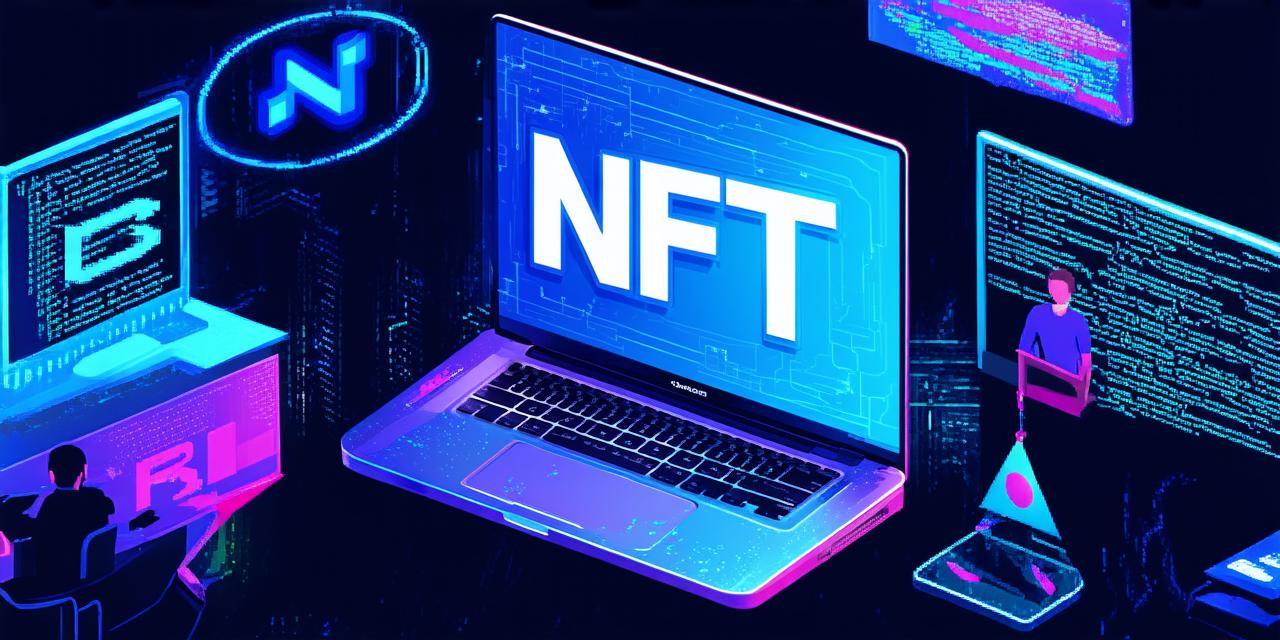Regulations Surrounding NFTs
NFTs are still a relatively new concept, and as such, there is currently no universally accepted definition or set of regulations governing their use. However, some countries have taken steps to regulate the use of NFTs in specific industries.
For example, in China, the government has issued guidelines for the issuance and sale of NFTs. These guidelines include requirements for registration, licensing, and reporting of transactions involving NFTs. In addition, the government has also warned against the illegal use of NFTs for illegal activities such as money laundering or gambling.
In the United States, the Securities and Exchange Commission (SEC) has taken a more cautious approach to NFTs. While the SEC has not explicitly classified NFTs as securities, it has issued guidance on how certain NFT-based investments may be subject to securities laws. This guidance includes requirements for registration, licensing, and reporting of transactions involving NFTs.
In Europe, there is no specific regulation governing the use of NFTs. However, the European Union (EU) has issued guidelines on the use of blockchain technology in financial services, which may apply to some NFT-based applications.
Legal Challenges for NFT Game Developers
Despite the lack of specific regulations governing NFTs, there are still potential legal challenges that NFT game developers should be aware of. One major challenge is determining whether an NFT is a security or not. As mentioned earlier, the SEC has issued guidance on this issue, but it is not yet clear how courts will interpret these guidelines in practice.
Another challenge is ensuring compliance with consumer protection laws. NFTs are often sold to consumers, and as such, game developers must ensure that they are complying with relevant consumer protection laws. This may include requirements for clear and conspicuous disclosures, refund policies, and protections against fraud or scams.
Finally, there is the risk of intellectual property disputes arising from the use of NFTs. Game developers must ensure that they have the appropriate licenses and permissions to use any copyrighted materials in their games, including NFTs. Failure to do so could result in legal action and significant financial losses.
Best Practices for NFT Game Developers
Given the potential legal challenges and lack of specific regulations governing NFTs, it is important for NFT game developers to take a proactive approach to compliance. Here are some best practices that can help ensure compliance with relevant laws and regulations:
- Conduct thorough research on local regulations and consumer protection laws in the countries where your game will be available. This will help you understand the legal landscape and identify any potential compliance risks.
- Seek legal advice from experts in the field of NFTs and blockchain technology. These professionals can provide guidance on issues such as security classification, consumer protection, and intellectual property disputes.
- Develop clear and conspicuous disclosures for consumers regarding the use of NFTs in your game. This should include information about the risks associated with NFTs, how they will be used in the game, and any relevant terms and conditions.
- Implement strong security measures to protect NFTs from theft or fraud. This may include multi-factor authentication, encryption, and regular backups.
- Develop a comprehensive refund policy that complies with local consumer protection laws. This should include clear criteria for when refunds will be granted and how they will be processed.
- Ensure that you have the appropriate licenses and permissions to use any copyrighted materials in your game, including NFTs. This may involve obtaining permission from the copyright owner or using materials under a creative commons license.

Summary
In conclusion, while there is currently no universally accepted definition or set of regulations governing NFTs, there are potential legal challenges that NFT game developers should be aware of. By conducting thorough research, seeking legal advice, developing clear and conspicuous disclosures, implementing strong security measures, and ensuring compliance with consumer protection laws, NFT game developers can mitigate these risks and ensure the success of their games. As the legal landscape surrounding NFTs continues to evolve, it is important for game developers to stay informed and adapt their strategies accordingly.
